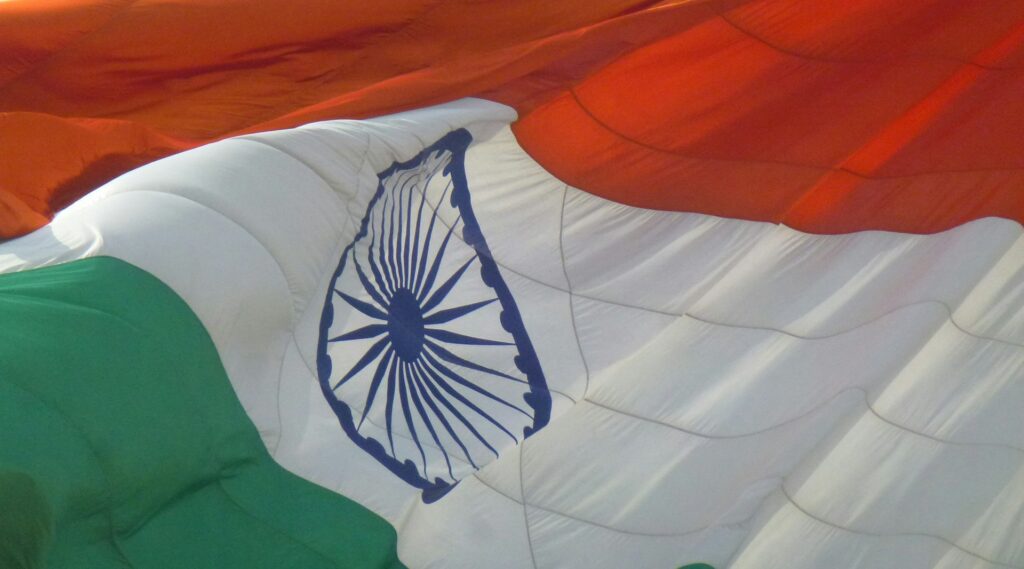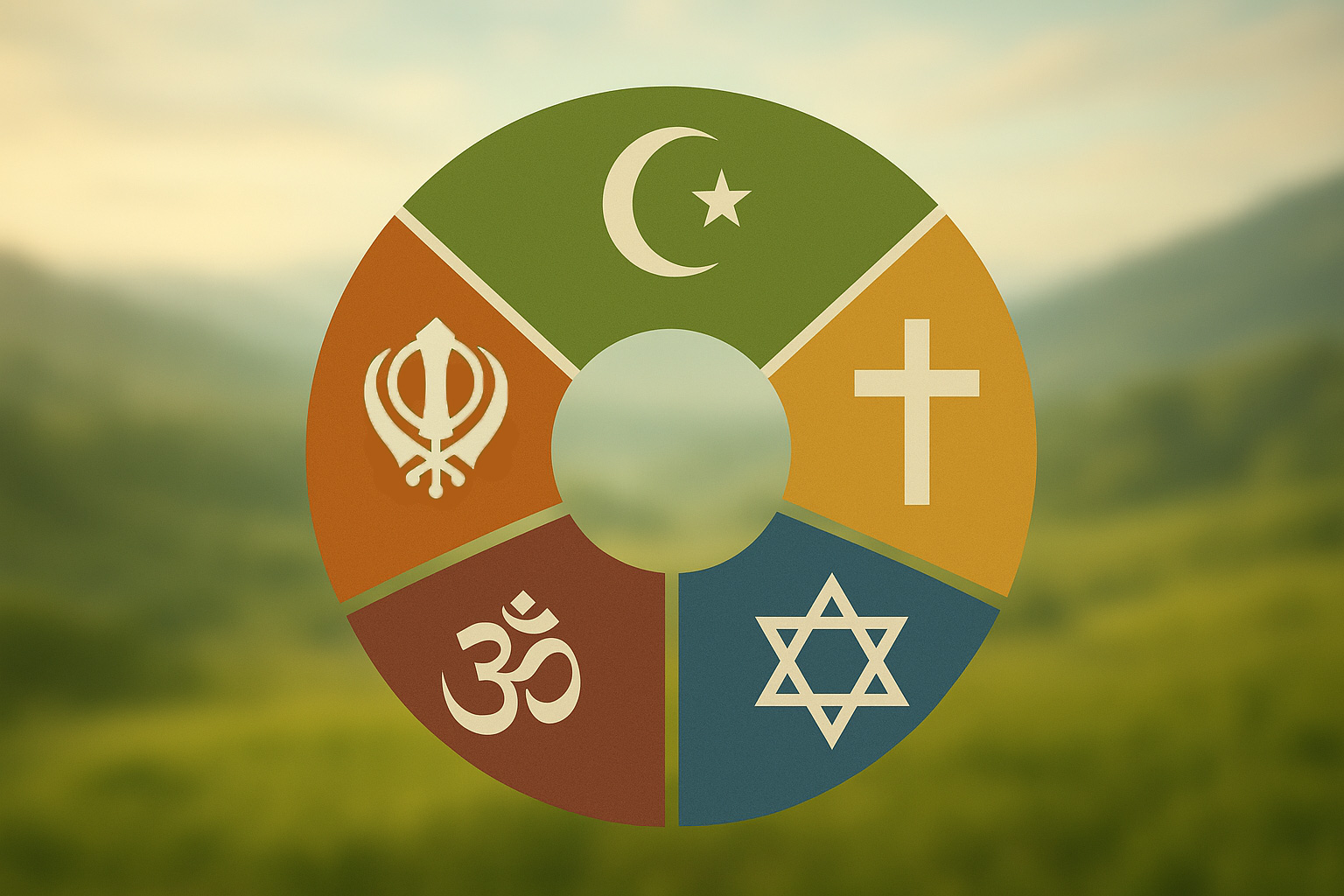In Islam, the concept of loyalty to one’s nation is highly regarded. While many people naturally develop a love for their homeland—the place of their birth and upbringing, filled with cherished memories—Islam goes further by mandating a profound sense of duty and allegiance to one’s country. This is not limited to an emotional connection; rather, it encompasses active participation in the betterment of the nation.
In light of these teachings, the Ahmadiyya Muslim Community, a global Muslim organisation spanning in over 200 countries worldwide, promotes these values and practises loyalty to the nation. In this article, we intend to highlight some key aspects of Islamic teachings in this regard, especially in light of an address by the Current Worldwide Head and the Fifth Khalifa (Caliph) of the Ahmadiyya Muslim Community, Hazrat Mirza Masroor Ahmadaba, which he delivered at the Military Headquarters in Germany on 30 May 2012.
Expression of true love for one’s country
In his address, Hazrat Mirza Masroor Ahmadaba expounded on the true meaning of loyalty to the country, saying:
“It is very easy to simply speak of, or hear the words, ‘loyalty and love for one’s nation.’ However, in reality these few words encompass meanings that are wide-ranging, beautiful and of tremendous depth. Indeed, to fully comprehend and understand what these words truly mean and what they require is actually very difficult.”
His Holiness continues to say that true loyalty ought to be free from any element of insincerity and duplicity:
“First and foremost, a fundamental principle of Islam is that a person’s words and deeds should never manifest any form of double standards or hypocrisy. True loyalty requires a relationship built on sincerity and integrity. It requires what a person displays on the surface to be the same as what lies beneath. In terms of nationality, these principles are of the utmost importance. Therefore, it is essential for a citizen of any country to establish a relationship of genuine loyalty and faithfulness to his nation. It does not matter whether he is a born citizen, or whether he gains citizenship later in life, either through immigration or by any other means.”
High standard of loyalty in Islam
Explaining how prophets were the true embodiment of loyalty, Hazrat Mirza Masroor Ahmadaba says:
“Loyalty is a great quality, and the people who have displayed this attribute to the highest degree and best standards, are the Prophets of God. Their love and bond with God was so strong that in all matters they kept in view His commands and strived to fully implement them, no matter what. This illustrated their commitment to Him and their perfect standards of loyalty. Hence, it is their standards of loyalty that we should use as an example and model. However, before proceeding any further, it is necessary to understand what is actually meant by ‘loyalty’.
To display loyalty, Islam requires a person to fulfil all the pledges and covenants. His Holiness explains this, saying:
“According to the teachings of Islam, the definition and true meaning of ‘loyalty’ is the unequivocal fulfilment of one’s pledges and covenants at every level and under all circumstances, regardless of difficulty. This is the true standard of faithfulness required by Islam. At various places in the Holy Qur’an, Allah has instructed Muslims that they must fulfil their pledges and covenants, because they will be held to account by Him over all undertakings that they have made. The Muslims have been instructed to fulfill all covenants, including those made with God Almighty, and also all other pledges they have made, according to their respective degrees of importance.”
Religion or nation?
Addressing a very crucial question of what to do if a person’s national interests conflict with their religious beliefs, Hazrat Masroor Ahmadaba states:
“In this context, a question that could arise in the minds of people is that because Muslims claim that God and His religion are of paramount importance to them, thus it follows that their pledge of loyalty to God will be their first priority, and that their covenant to God will be what they value above all else and which they endeavour to fulfil. Therefore, the belief may arise that a Muslim’s loyalty to his nation and his pledge to uphold the laws of the land will only be of secondary importance to him. Thus, he may be willing to sacrifice his pledge to his country on certain occasions.
“To answer this question, I would firstly like to inform you that the Holy Prophet Muhammad (peace be upon him) himself taught that the ‘love for one’s nation is a part of faith.’ Thus, sincere patriotism is a requirement in Islam. To truly love God and Islam requires a person to love his nation. It is quite clear, therefore, that there can be no conflict of interest between a person’s love for God, and love for his country. As love for one’s country has been made a part of Islam, it is quite clear that a Muslim must strive to reach the highest standards of loyalty to his chosen country, because that is a means of reaching God and becoming close to Him. Hence, it is impossible that the love a true Muslim holds for God could ever prove to be an impediment or barrier preventing him from displaying true love and faithfulness towards his country.”
Disobedience to government is not permissible
Obeying the government is obligatory; be it a Muslim government or a non-Muslim government. The Second Caliph of the Ahmadiyya Muslim Community says:
“The Holy Prophetas has emphatically commanded to obey the government or ruler. He says, “It is obligatory for you to listen to the ruler and obey him in adversity and prosperity, in pleasure and displeasure, and even when another person is given (rather undue) preference over you.”[11]
“Similarly, it is reported that the companions asked the Messenger of Allah: O Prophet of Allah, what do you think if we have rulers who rule over us and demand that we discharge our obligations towards them, but they (themselves) do not discharge their own responsibilities towards us? What do you order us to do? The Messenger of Allah avoided giving any answer at first, but when the question was repeated, the Prophetsa said: Listen to them and obey them, for on them shall be their burden and on you shall be your burden.”[12]
There is no mention or even a hint in the abovementioned narrations that limits the scope of obedience to Muslim rulers. It should be remembered that no one is bound to live in any particular country or under any particular ruler, but when a person chooses to live in a country, he is bound to abide by its laws.
“We find that in certain countries, religious rights are curtailed or even completely denied. Therefore, another question that can arise is whether those people who are persecuted by their state can still maintain a relationship of love and loyalty to their nation and country.
“In such circumstances, Islam advocates that where persecution goes beyond all limits and becomes unbearable, then at that time, a person should leave the town or country and migrate to a place where he is free to practise his religion in peace. However, alongside this guidance, Islam also teaches that under no circumstances should any individual take the law into his own hands and nor should he partake in any schemes or conspiracies against his country. This is an absolutely clear and unequivocal command given by Islam.”
Rebellion against nation is wrong
“Another teaching given by the Holy Qur’an in relation to loyalty is that people should keep away from all things that are immodest, undesirable and that form any type of rebellion. A beautiful and distinguishing feature of Islam is that it does not just draw our attention to the final point of culmination, where the consequences are extremely dangerous; instead, it warns us about all of the smaller issues as well, which act as stepping stones leading mankind to a path paved with danger. Thus, if Islam’s guidance is followed properly, then any issue can be resolved at the earliest point, before the situation gets out of hand.”
Greed: A great menace
“An issue which can gravely harm a country is financial greed by individuals. Often, people get consumed by material desires that spiral beyond control, and such desires ultimately lead people to act in a disloyal fashion. Thus, such things can ultimately be a cause of treachery against one’s country. Let me explain a bit. In Arabic the word bagha has been used to describe those people or those acts of people that cause harm to their countries. It refers to those who take part in wrong practices or who inflict harm on others. It also includes those people who commit fraud and so try to acquire things in an illegal or unjust manner. It refers to those people who transgress all limits and so cause harm and damage. Islam teaches that people who act in these ways cannot be expected to act in a loyal manner, because loyalty is intertwined with high moral values. Loyalty cannot exist without high moral values and high moral values cannot exist without loyalty. Whilst it is true that different people may have different views about high moral standards, yet the religion of Islam revolves solely around seeking God’s pleasure. Thus, Muslims are instructed to always act in a manner that is pleasing to Him.
“In short, according to Islamic teachings, God Almighty has forbidden all forms off treachery or rebellion, whether against one’s country or one’s government. This is because rebellion or acting against the state is a threat to the peace and security of a nation. Indeed, where internal rebellion or opposition occurs, then it fans the flames of external opposition and encourages outsiders to take advantage of the internal disorder. Hence, the consequences of disloyalty to your nation can be far-reaching and extreme. Thus, anything that can cause harm to a nation is included in the term bagha that I have described. Keeping all of this in mind, loyalty to one’s nation requires a person to display patience, to show morality and to follow the laws of the land.”
Progress of the nation
“In the modern era, most governments are run democratically. Therefore if a person or group wishes to change the government, then they should do so by following the proper democratic process. They should make themselves heard by voting at the ballot box. Votes should not be cast on the basis of personal preferences or personal interests, but in fact, Islam teaches that a person’s vote should be exercised with a sense of loyalty and love for his country. A person’s vote should be cast with the betterment of the nation in mind. Therefore, a person should not look at his own priorities and from which candidate or party he can personally benefit; instead, a person should make his decision in a balanced way whereby he assesses which candidate or party will help the entire nation progress. The keys to government are a huge trust and thus they should only be handed over to the party who the voter honestly believes is best suited and most deserving. This is the true Islam, and this is true loyalty.
“Indeed, in Chapter 4, verse 59 of the Holy Qur’an, Allah has commanded that a person should only hand over trusts to those who are entitled, and that when judging between people, he should make his decision with justice and honesty. Thus, loyalty to one’s nation requires that the power of the government should be given to those who are truly entitled to it, so that the nation can progress and come to stand at the forefront amongst the nations of the world.”
Protests and strikes
“In many parts of the world we find that members of the public take part in strikes and protests against government policies. Furthermore, in certain Third World countries, the protesters vandalise or damage possessions and properties belonging either to the state or to private citizens. Though they may claim to be acting out of love, the truth is that such acts have nothing to do with loyalty or love for the nation. It should be remembered that even where protests or strikes are conducted peacefully, without recourse to criminal damage or violence, it still can have a very negative effect. This is because even peaceful protests often result in a loss of millions to the economy of the nation. Under no circumstances can such behaviour be considered to be an example of loyalty to the nation. A golden principle taught by the Founder of the Ahmadiyya Muslim Jama’at was that under all circumstances, we must always remain obedient to Allah, to the Prophets and to the rulers of our nation. This is the same teaching given in the Holy Qur’an. Hence, even where a country permits strikes or protests to take place, they should only be conducted to the extent where they do not harm or cause damage to the nation or to the economy…..
“Thus these are just a few aspects of Islamic teachings, which guide all true Muslims towards the real requirements of loyalty and love for one’s country.”
Responsibilities of the world leaders
“Today we observe that the world has become a global village. Mankind has become very closely knit together. The people of all nations, religions and cultures are found in all countries. This requires that the leaders of every nation should consider and respect the feelings and sentiments of all people. The leaders and their governments should strive to create laws that foster an environment and spirit of truth and justice, rather than making laws that are a means of causing distress and frustration to the people. Injustices and cruelties should be eliminated and instead we should strive for true justice.”
World should recognise its Creator
“The world should come to recognise its Creator. Every form of loyalty should be linked to loyalty with God. If this occurs then we will come to witness with our own eyes that the very highest standards of loyalty will be established by the people of all countries and new avenues leading us to peace and security will open throughout the world.”
The complete speech of his Holiness, Hazrat Mirza Masroor Ahmadaba, the worldwide head of the Ahmadiyya Muslim Community, from where the above excerpts are taken can be read from the book, “World Crisis and the Pathway to Peace”, which is a compilation of his addresses delivered at various parliaments including the British Parliament, European Parliament, Capitoll Hill US, New Zealand Parliament etc. The book also comprises letters sent by his Holiness to different world leaders.
Finally, we pray that the world come to act upon these teachings so that it may become a haven of peace.
END NOTES
[1]













0 Comments